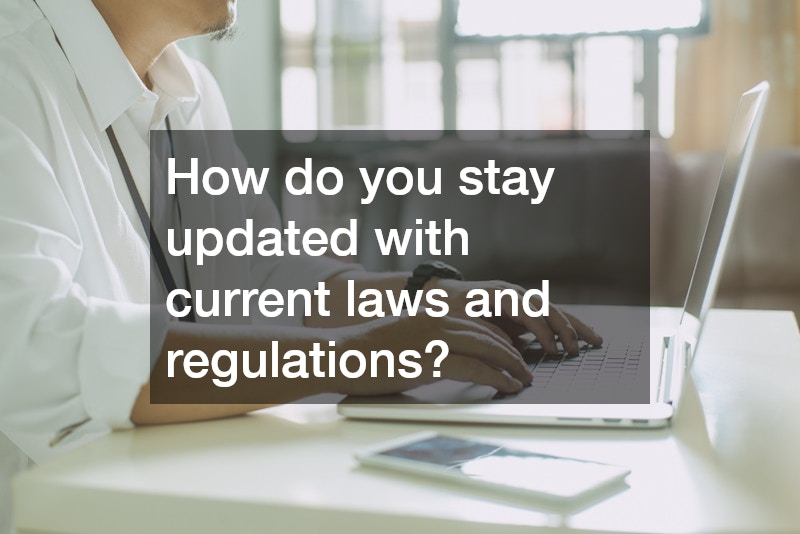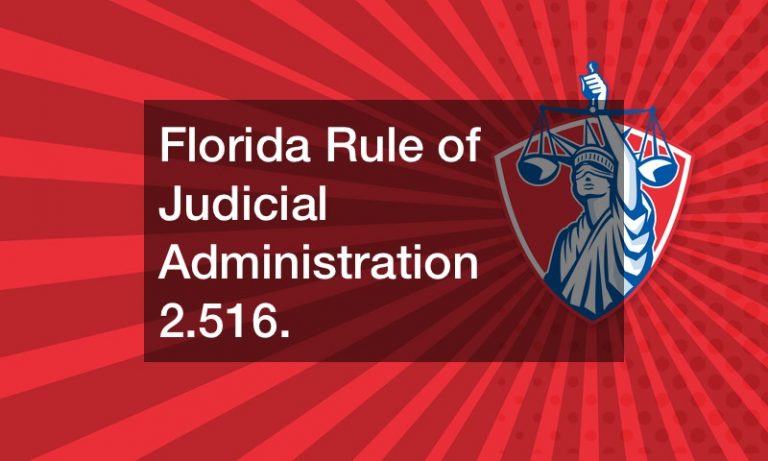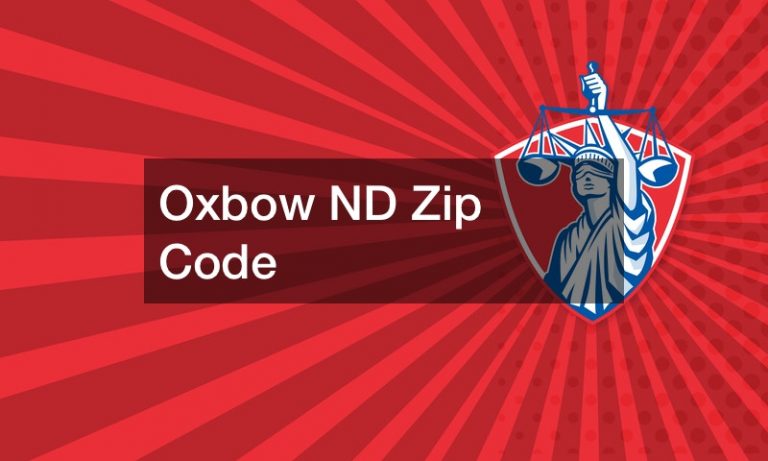Top Questions You Should Ask Any Lawyer You Hire


Hiring a lawyer is a significant decision that can impact your life in many ways, whether it’s for personal, financial, or legal reasons. Choosing the right lawyer goes beyond just finding someone with legal knowledge; it requires careful consideration of various factors. One of the best ways to ensure you are making the right decision is to ask the right questions. By doing so, you can gauge a lawyer’s experience, transparency, communication style, and overall fit for your legal needs. This article will provide a comprehensive list of important questions you should ask any lawyer you consider hiring. These questions will help guide you in making an informed choice.
1. What is your experience in this field?

The first question you should ask any lawyer you hire is about their experience in the specific field of law that pertains to your case. Legal expertise can vary widely across different areas of law, from criminal defense to family law, and from workers’ compensation to personal injury. It’s important to determine if the lawyer has the necessary experience to handle your case effectively.
1.1 Educational Background
Understanding the educational background of your lawyer can provide insight into their legal foundation. Ask where they attended law school and whether they have pursued any advanced legal education. For example, if you need a dui lawyer, it’s critical to know if they have specialized training in DUI law or criminal defense. Having this background ensures that your lawyer is equipped with the necessary knowledge and skills to navigate your case successfully.
1.2 Years of Practice
Years of experience in the legal field matter. A lawyer who has been practicing for many years may have seen various types of cases and know how to strategize effectively. Ask how long they have been practicing law and how much of that time has been spent in the particular area related to your case. A local lawyer with several years of practice in your jurisdiction may also be more familiar with local judges, prosecutors, and court systems, which can be beneficial for your case.
1.3 Previous Case Successes
It is also helpful to ask about their previous successes in handling similar cases. Inquire whether they have handled cases like yours before and what the outcomes were. If they are estate planning lawyers, you may want to know how many wills and trusts they have successfully completed. If they are criminal lawyers, you should ask about their win-loss ratio or how many cases they have settled out of court.
2. What are your fees and billing practices?
Understanding how a lawyer charges for their services is one of the most critical aspects of hiring legal representation. You need to know exactly how much you will be paying and what you will get in return for that investment. Some lawyers charge by the hour, while others may offer flat fees for certain types of cases.
2.1 Hourly Rates vs. Fixed Fees
One of the first things to clarify is whether the lawyer charges by the hour or offers fixed fees. Some cases, like estate planning, might come with a fixed fee, whereas more complex cases, like those handled by dui lawyers or criminal lawyers, may be billed hourly. A local lawyer will likely explain how their billing structure works in relation to your specific case. It’s important to have a clear understanding of these charges upfront to avoid any financial surprises later on.
2.2 Retainer Fees
Retainer fees are also an essential part of the discussion. Many attorneys, especially those who work on a contingency basis, will require a retainer before they begin working on your case. A retainer is essentially an upfront payment that goes into an account from which the lawyer draws their fees as they work on your case. Make sure to ask how the retainer is handled and whether any unused portion will be refunded at the conclusion of your case.
2.3 Additional Costs and Expenses
Besides legal fees, there may be additional costs associated with your case. These could include court fees, expert witness fees, and other incidental expenses. It’s crucial to ask if these costs are included in the lawyer’s fees or if they will be billed separately. This is especially important if you’re dealing with more complicated cases like workers’ compensation, where workers compensation law firms may need to hire medical experts or vocational rehabilitation experts to testify.
3. Who will be working on my case?

It’s common for law firms to operate as teams, with multiple people handling different aspects of a case. As a client, it’s important to know who will be involved in your case and what their roles will be.
3.1 Team Structure
Ask whether the lawyer you are interviewing will personally handle your case or whether it will be assigned to another attorney within the firm. Many large law firms have a team structure where different attorneys or legal staff handle various components of a case. You want to know whether a senior lawyer or a junior associate will be working on your case and what that means for the quality of service you will receive.
3.2 Role of Paralegals and Assistants
Often, much of the legal work in a case is done by paralegals and legal assistants. While they are highly trained and capable professionals, it’s still essential to understand the extent to which your lawyer will be personally involved. Ask about the role that paralegals and assistants will play in your case and how much interaction you will have with them.
3.3 Availability and Communication
Effective communication is key in any attorney-client relationship. Ask about the lawyer’s availability and how often they will update you on the status of your case. Will you be able to reach them directly, or will most of your communication go through a legal assistant? It’s vital to establish clear expectations about how and when updates will be provided.
4. What is your approach to handling cases?
Each lawyer has their own method for handling cases, and it’s important to understand their approach before deciding to work with them.
4.1 Strategy Development
When discussing your case, ask how the lawyer plans to develop a legal strategy. For example, if you are working with estate planning lawyers, you will want to know how they intend to structure your estate in a way that minimizes taxes and maximizes asset protection. The strategy should be tailored to your specific needs and goals.
4.2 Case Management Plan
A well-organized lawyer will have a clear case management plan that outlines the different stages of your case, the timeline, and the steps involved. Ask for details about how your case will be managed and who will be responsible for each step. This will help you understand how the process will unfold and what you can expect along the way.
4.3 Client Involvement
Some lawyers prefer to take full control of a case, while others will seek more involvement from their clients. Ask how much input you will have throughout the process and whether the lawyer values your feedback. The level of client involvement may vary depending on the type of case; for example, in workers’ compensation cases handled by workers compensation law firms, client involvement may be crucial for providing detailed medical and employment history.
5. Can you provide references or testimonials?

References and testimonials from past clients can provide valuable insight into a lawyer’s reputation and effectiveness.
5.1 Previous Clients
Ask if the lawyer can provide testimonials or references from previous clients who had cases similar to yours. For example, if you are working with workers compensation law firms, it’s helpful to hear from others who have been through a similar experience. Testimonials can offer firsthand accounts of how the lawyer handled their case and what the outcome was.
5.2 Professional Accolades
In addition to client references, it’s useful to ask about any professional accolades or recognitions the lawyer has received. Awards from reputable legal organizations, high peer review ratings, or recognition from legal publications can be strong indicators of a lawyer’s competence.
5.3 Online Reviews
Checking online reviews can also give you a sense of the lawyer’s reputation. Many law firms maintain a presence on websites where clients can leave reviews. While not all reviews may be entirely reliable, they can provide additional context about how the lawyer interacts with clients and handles cases.
6. What is your success rate?
While no lawyer can guarantee a win, understanding their track record can help you gauge their effectiveness.
6.1 Win-Loss Ratio
If you are hiring criminal lawyers, ask about their win-loss ratio, particularly in cases similar to yours. A lawyer with a high win percentage may have stronger negotiation and courtroom skills, which could positively influence the outcome of your case.
6.2 Settlement Rates
In cases that don’t go to trial, settlement rates can be just as important as win-loss ratios. Lawyers who have successfully settled many cases may be more skilled in negotiations. This can be especially beneficial in cases where avoiding a lengthy trial is preferable, such as personal injury cases.
6.3 Appeal Successes
If your case could potentially result in an appeal, it’s worth asking about the lawyer’s success rate in appellate cases. Appeal cases can be very different from initial trials, so it’s important to know whether the lawyer has experience and success in this area.
7. How do you stay updated with current laws and regulations?

Laws and regulations are constantly changing, and it’s crucial that your lawyer stays informed.
7.1 Continuing Legal Education
Ask about the lawyer’s commitment to continuing legal education. Lawyers for personal injury and other types of attorneys should regularly attend courses or seminars to stay updated with the latest legal developments. A lawyer who prioritizes education will be better equipped to handle your case in light of recent changes in the law.
7.2 Membership in Professional Organizations
Many attorneys are members of professional organizations that provide access to specialized knowledge and resources. Ask whether the lawyer is a member of any local or national legal organizations related to your case. Membership in such groups can indicate a dedication to staying informed about legal trends and practices.
7.3 Research and Publications
Some lawyers contribute to the legal field by conducting research or writing publications. Ask whether your lawyer has authored any legal articles, books, or research papers. This can be a sign of their expertise and commitment to advancing legal knowledge.
8. What are the potential outcomes of my case?
While no lawyer can predict the future, it’s important to discuss the possible outcomes of your case so you can set realistic expectations.
8.1 Best-Case Scenarios
Ask the lawyer to explain the best-case scenario for your case, particularly if you are hiring defense attorneys for a criminal matter. Understanding what the most favorable outcome could be will help you set your expectations and develop a strategy with your lawyer.
8.2 Worst-Case Scenarios
It’s equally important to discuss the worst-case scenario. Knowing the potential risks and negative outcomes will help you make more informed decisions about how to proceed with your case. This is particularly important in high-stakes cases like criminal defense, where the consequences of a loss can be severe.
8.3 Likelihood of Different Outcomes
A good lawyer will be able to provide a balanced view of the likelihood of various outcomes. While they may not guarantee a specific result, they should offer an honest assessment based on the facts of your case and their experience.
9. What are the potential risks and challenges in my case?
Every legal case comes with risks and challenges that may not be immediately apparent.
9.1 Common Legal Pitfalls
Ask the lawyer about common legal pitfalls associated with your type of case. For example, if you are dealing with an auto repair service dispute, there may be specific challenges related to contract law or consumer protection regulations. Understanding these pitfalls will help you avoid potential mistakes that could negatively impact your case.
9.2 Unpredictable Factors
Legal cases can be affected by a variety of unpredictable factors, such as changes in the law, the actions of opposing parties, or unforeseen events. Ask the lawyer how they plan to address these uncertainties and what contingencies are in place.
9.3 Risk Mitigation Strategies
A proactive lawyer will have strategies in place to mitigate risks. Ask about the specific steps they will take to minimize the chances of a negative outcome in your case. This can include gathering additional evidence, seeking expert testimony, or negotiating settlements before trial.
10. How do you communicate with clients?
Communication is one of the most important aspects of the attorney-client relationship, and it’s crucial to establish clear lines of communication from the start.
10.1 Preferred Communication Methods
Ask the lawyer about their preferred methods of communication. Some lawyers prefer to communicate via email, while others may prefer phone calls or in-person meetings. Establishing this upfront will help ensure that you stay informed throughout the legal process.
10.2 Frequency of Updates
Inquire about how often the lawyer will provide updates on your case. Will they contact you only when there are major developments, or will they provide regular updates even when there is no significant news? Knowing this can help set expectations for how involved you will be during the legal process.
10.3 Client Access to Information
Some law firms offer clients access to an online portal where they can view case updates, billing information, and important documents. Ask if this is an option and whether you will have easy access to information about your case. This can be particularly useful in complex cases where there may be many moving parts.
11. Can you explain the legal process for my case?
Before hiring a lawyer, it’s important to understand the legal process that your case will follow.
11.1 Initial Consultation
Ask the lawyer to explain what will happen during the initial consultation. This meeting is your opportunity to ask questions, provide information about your case, and decide whether the lawyer is the right fit for you. Many lawyers offer a free initial consultation, while others may charge a fee.
11.2 Pre-Trial Procedures
Understanding the pre-trial procedures for your case is crucial. Whether you are dealing with medical insurance providers in a personal injury case or facing criminal charges, the pre-trial phase involves gathering evidence, filing motions, and negotiating settlements. Ask the lawyer to explain what steps will be taken before your case goes to trial.
11.3 Trial and Post-Trial Process
Finally, ask the lawyer to explain what will happen during the trial and post-trial process. This includes everything from presenting evidence to appealing a decision if necessary. Having a clear understanding of the legal process will help you feel more confident as your case moves forward.
Conclusion
Hiring the right lawyer is a critical decision that requires careful consideration. By asking these essential questions, you can ensure that the lawyer you choose has the experience, skills, and communication style that best suits your needs. Understanding their approach, fees, and success rates will help you make an informed choice. Don’t be afraid to ask tough questions; after all, your legal case is too important to leave to chance.





